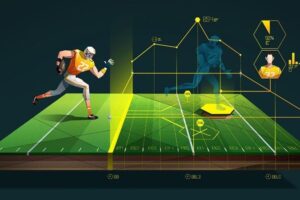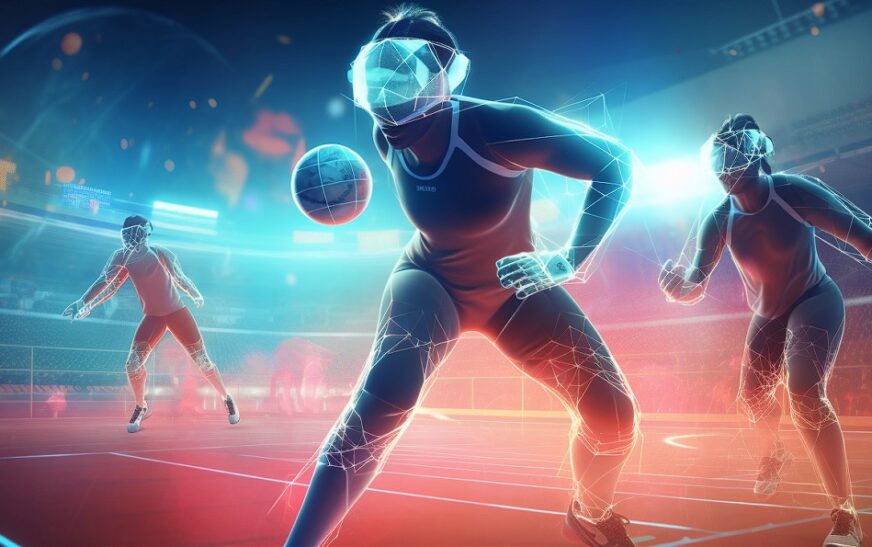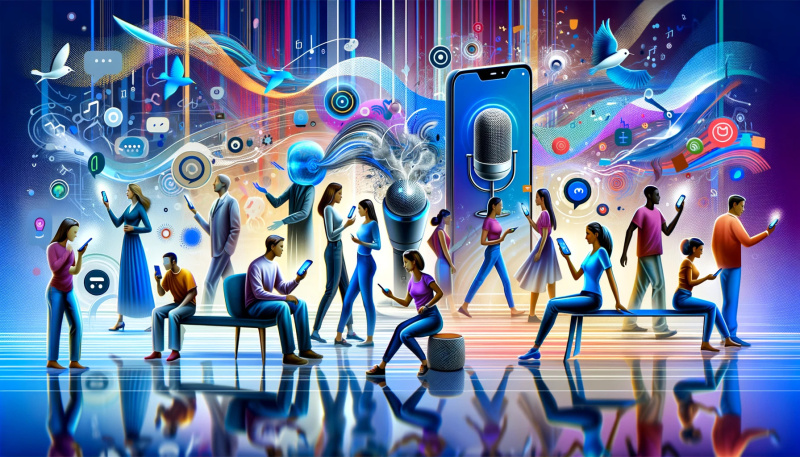Introduction to Artificial Intelligence in Sports
The world of sports is evolving, and at the forefront of this transformation is Artificial Intelligence. From enhancing player performance to redefining team strategies, AI technologies are revolutionizing how athletes train and compete. Imagine a realm where data analytics meets physical prowess, crafting personalized coaching plans that optimize every aspect of an athlete’s game. As teams harness the power of machine learning and predictive analytics, they are not just playing the game; they’re rewriting its rules.
This seismic shift raises intriguing questions about what it means to be an athlete in today’s tech-driven landscape. With AI stepping into various roles—be it analyzing gameplay or predicting outcomes—the future looks both exciting and complex for sports enthusiasts everywhere. Let’s delve deeper into how Artificial Intelligence is reshaping Sports by Enhancing Performance and Strategy across all levels of competition.
Advancements in Technology for Athletes
 Technology is reshaping the landscape of sports. Athletes are now equipped with wearable devices that monitor their vital signs in real-time. These gadgets track heart rate, sleep patterns, and even hydration levels.
Technology is reshaping the landscape of sports. Athletes are now equipped with wearable devices that monitor their vital signs in real-time. These gadgets track heart rate, sleep patterns, and even hydration levels.
Smart fabrics have also emerged, integrating sensors to provide feedback on muscle strain and movement efficiency. This data helps athletes fine-tune their training regimens.
Moreover, virtual reality is becoming a game-changer for skill development. It allows players to immerse themselves in simulated environments, honing their skills without physical strain.
On top of this, recovery technology like cryotherapy chambers and advanced compression gear accelerates healing processes. Athletes can bounce back faster from injuries or intense workouts.
These advancements create a holistic approach to performance enhancement—both physically and mentally—for every athlete committed to optimizing their game.
AI and Player Performance
 Artificial Intelligence is revolutionizing how athletes enhance their performance. By leveraging data analytics, AI helps identify strengths and weaknesses in player skills.
Artificial Intelligence is revolutionizing how athletes enhance their performance. By leveraging data analytics, AI helps identify strengths and weaknesses in player skills.
Wearable technology collects real-time data during training sessions and games. This information allows for tailored workout regimens that align with individual needs. Athletes can track metrics like heart rate, speed, and agility to maximize their potential.
Moreover, AI-powered video analysis tools break down gameplay footage frame by frame. Players receive instant feedback on technique and tactics—facilitating quick adjustments on the field or court.
AI also predicts injury risks by analyzing movement patterns, enabling preventive measures that keep athletes at peak performance levels. With these advancements, players are not only breaking records but redefining what’s possible in sports today.
AI and Team Strategy
Artificial intelligence is reshaping how teams approach strategy in sports. Coaches now have access to data analytics that can identify patterns and trends previously unnoticed.
AI algorithms analyze game footage, assessing opponents’ strengths and weaknesses in real time. This information allows coaches to devise tailored tactics for each matchup, enhancing the chances of victory.
Furthermore, AI tools simulate various scenarios during practice sessions. Teams can explore different strategies without risking player fatigue or injury. This experimentation leads to more informed decisions on game day.
Communication among players also improves with AI insights. When everyone understands their role within a strategic framework, teamwork becomes seamless.
As technology evolves, integrating AI into team strategy will continue to define competitive edges across all sports disciplines. The future promises even more sophisticated systems that enhance collaboration and decision-making on the field.
Impact of AI on Coaching and Training
The impact of AI on coaching and training is revolutionizing the sports landscape. Coaches now have access to vast amounts of data, allowing for more tailored training programs.
AI can analyze an athlete’s biomechanics in real-time, pinpointing areas for improvement. This leads to smarter training sessions that focus on individual weaknesses.
Furthermore, virtual reality simulations powered by AI allow athletes to practice under game-like conditions without physical strain. These immersive experiences enhance decision-making skills and mental preparedness.
Coaches benefit from predictive analytics as well. They can anticipate player performance trends and adjust strategies accordingly during games or season planning.
The relationship between coach and athlete evolves as feedback becomes instantaneous through wearable technology. Athletes receive immediate insights into their performance metrics, fostering a culture of continuous improvement.
This synergy between human expertise and artificial intelligence creates a dynamic environment where both coaches and players thrive together.
Potential Ethical Concerns
As Artificial Intelligence permeates sports, ethical concerns emerge. Data privacy is a significant issue. Athletes generate vast amounts of personal data through wearables and performance tracking systems. Who has access to this information? How is it being used?
Another concern involves fairness in competition. AI tools may give certain teams or athletes an edge, raising questions about the integrity of the game. If one team leverages advanced analytics while another does not, where’s the level playing field?
Moreover, reliance on AI could diminish human intuition in coaching and strategy formulation. Coaches might depend too heavily on algorithms rather than trusting their instincts or experience.
There’s the matter of accountability when decisions are driven by AI recommendations. If a crucial match hinges on an algorithmic miscalculation, who takes responsibility? These dilemmas need careful consideration as technology continues to evolve within sports contexts.
Future Possibilities for AI in Sports
The future of Artificial Intelligence in sports holds exciting prospects. Imagine AI systems capable of predicting injuries before they occur. This could revolutionize athlete health management, reducing downtime and prolonging careers.
Another intriguing possibility is the integration of virtual reality with AI analytics. Training sessions could become immersive experiences tailored to individual player needs, adapting in real-time based on performance metrics.
Fan engagement might also transform significantly. Personalized content powered by AI can enhance viewer experiences during games, offering insights and statistics that cater to individual preferences.
Moreover, we may see AI-driven scouting processes that identify raw talent across various platforms globally. Advanced algorithms could analyze countless data points quickly, uncovering hidden gems who would have otherwise gone unnoticed.
As technology continues to evolve, the potential applications for Artificial Intelligence in sports are vast and varied. The journey ahead promises a blend of innovation and tradition like never before.
Conclusion
The integration of artificial intelligence in sports is transforming how athletes train, compete, and strategize. With advancements in technology, we can now analyze performance data at an unprecedented scale. AI-driven insights provide teams with a competitive edge that was once unimaginable.
From optimizing player performance to refining team strategies, the impact of AI is profound. Coaches leverage these tools to personalize training programs based on individual needs while making informed decisions during games. The potential for enhanced outcomes is significant.
However, as with any emerging technology, ethical considerations must be addressed. The balance between leveraging AI’s capabilities and maintaining fair play remains crucial.
Looking ahead, the possibilities are vast. As technology continues to evolve, so too will its applications within the world of sports. This intersection promises not just improvements in performance but also a fresh perspective on strategy and competition.
Artificial intelligence stands poised to redefine what it means to excel in sports. Embracing these innovations could lead us into an exciting future filled with heightened athleticism and strategic prowess across all levels of play.






